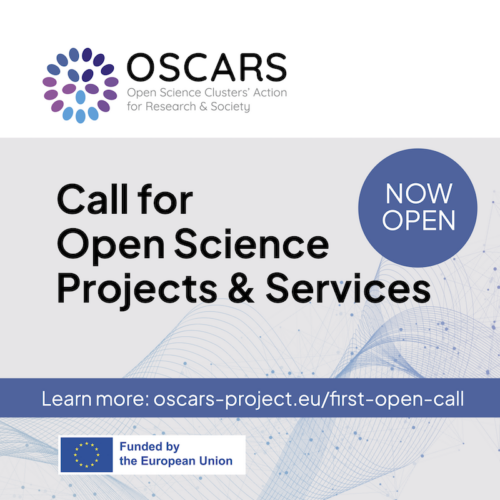
On March 15th, the Science Clusters launched the first OSCARS cascading-grant call for Open Science projects and services. Over 300 attendees across and beyond Europe joined the online launch event and had the opportunity to interact with the panelists via an open Q&A session. As stated by OSCARS’ project coordinator, Giovanni Lamanna, “the aim of the […]
Read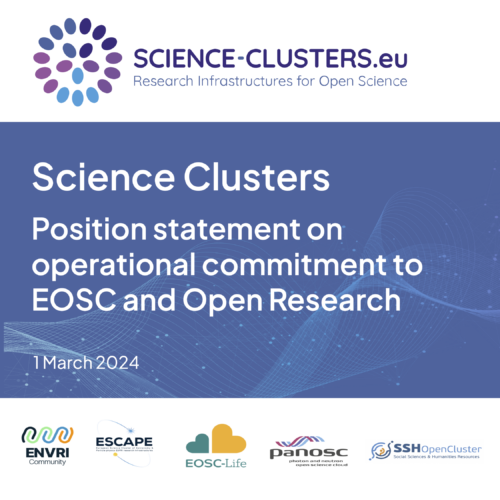
The ESFRI Science Clusters, operating as a cluster of clusters in projects like OSCARS and EVERSE, have released the Science Clusters Position Statement on operational commitment to EOSC and Open Research, which articulates the Science Clusters’ vision for the future towards the successful implementation of the EOSC, as the result of five years of collaborative efforts, […]
Read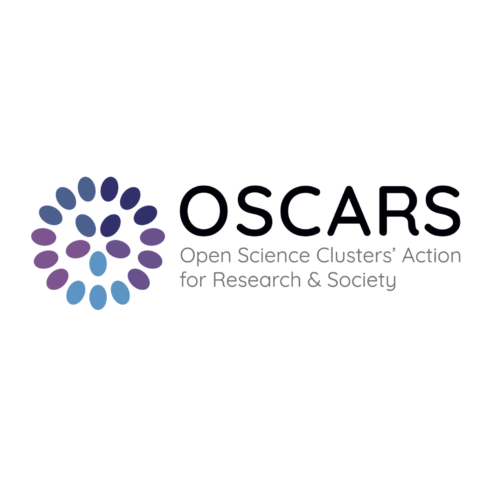
A wide range of publicly-funded Research Infrastructures (RIs) in Europe are organised in five major Science Clusters, which in the past four years implemented funded projects under the Horizon 2020 programme[1] to achieve a greater FAIRness of science[2], contributing to making research data FAIR: Findable, Accessible, Interoperable and Reproducible. These “Science Clusters” have strived to […]
Read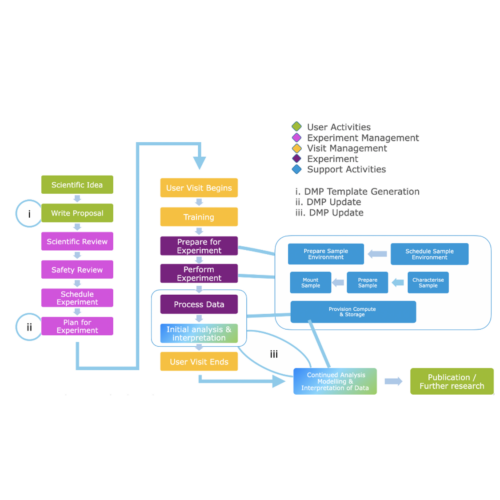
The scientific world is undergoing a major change with the widespread adoption of the so-called FAIR principles for research data. The FAIR principles were proposed to ensure research data are made available to the scientific community so that they can be found, downloaded, understood and reused. The goal is to make data used in scientific publications […]
Read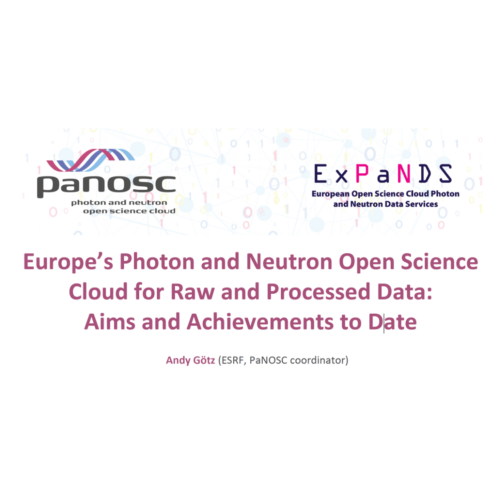
On 25 August 2023, Andy Götz gave the talk “Europe’s Photon and Neutron Open Science Cloud for Raw and Processed Data: Aims and Achievements to Date at the IUCr 2023 event held at the Melbourne Convention and Exhibition Centre. Presentation’s abstract The Photon and Neutron Open Science Cloud (PaNOSC) and the European Open Science Cloud Photon […]
Read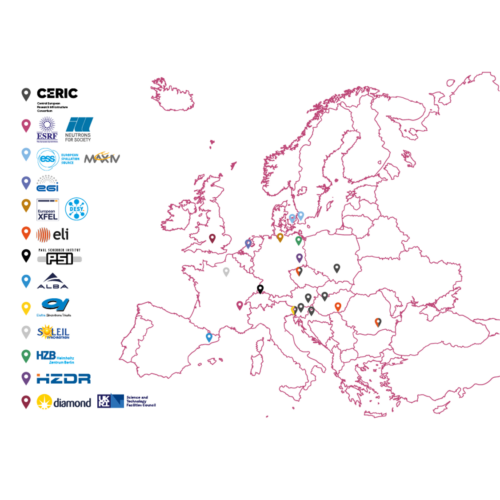
Following the closure of the PaNOSC and ExPaNDS projects in November 2022 and February 2023, respectively, the Photon and Neutron community efforts to contribute to the EOSC, FAIR data and Open Science will be structured around the PaNOSC science cluster. From now on, the panosc.eu website will thus be showcasing all the services developed and […]
Read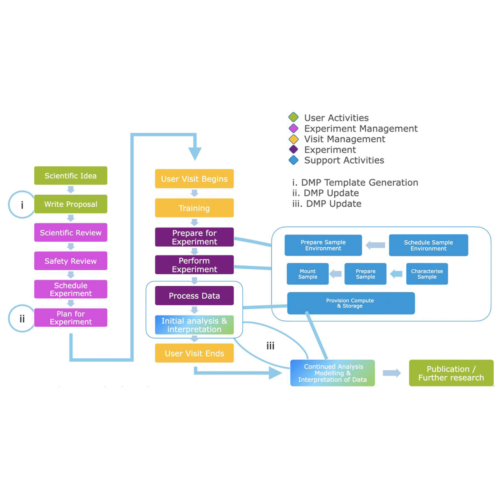
A research paper developed in the frame of the PaNOSC project was recently published on the CODATA Data Science journal. The paper reports the project approach (based on the concept of active data management plans and a common template of questions) and process used to choose a common data management plans (DMPs) tool. In fact, one of the […]
Read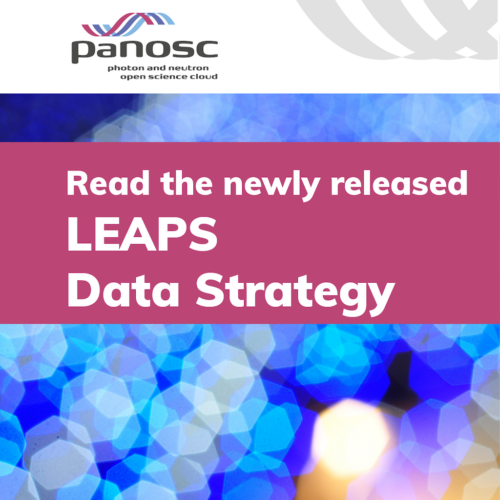
The continuous evolution of photon and neutron (PaN) sources and their instrumentation enables more and new scientific endeavours at ever increasing pace. This technological evolution is accompanied by an exponential growth of data volumes of increasing complexity, which must be addressed by maximising efficiency of scientific experiments and automation of workflows covering the entire data […]
Read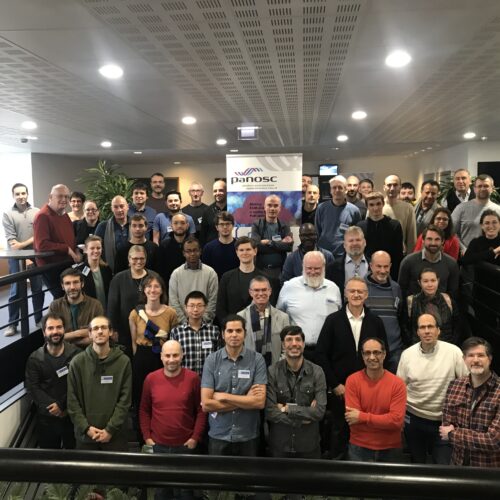
Over 120 participants, including IT staff and managers, RIs’ managers, communications specialists, EOSC project contributors and coordinators and expert scientists, attended the PaNOSC closing event held in Grenoble and online on 29-30 November 2022. The event aimed to present the way forward for the major results achieved during the four years of the project. The project’s […]
Read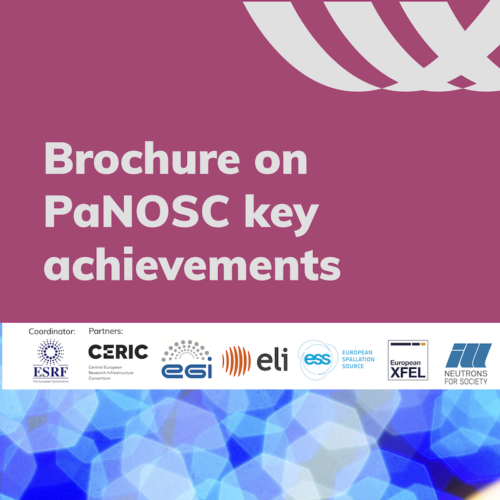
The PaNOSC final brochure has been released, with an overview of the main project’s achievements at the end of the H2020 grant, towards making FAIR data a reality at photon and neutron (PaN) facilities in Europe. In particular, the publication highlights results in the fields of data stewardship, from data collection through to publication, showcasing the […]
Read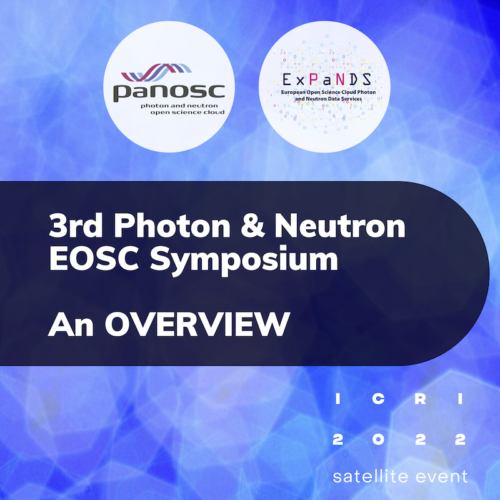
18 October 2022, Brno & online PaNOSC and ExPaNDS organised the 3rd Photon and Neutron (PaN) EOSC Symposium on sustainable data from PaN facilities as a satellite event to the International Conference of Research Infrastructures (ICRI), held in Brno (CZ) on the 18th October 2022. The symposium, which hosted 12 participants onsite and 32 online […]
Read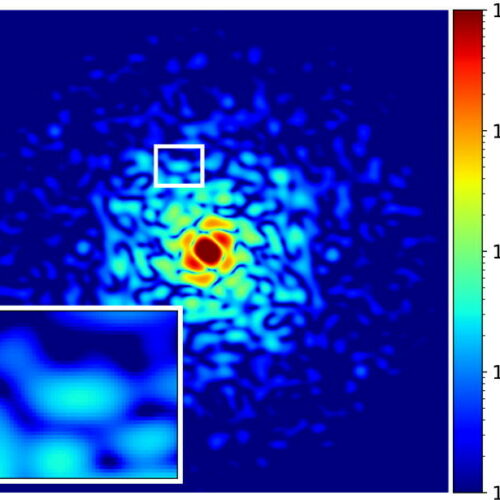
A new peer-reviewed open access paper has been released in the Structural Dynamics journal, as a result of the work conducted in PaNOSC to setup and develop tools for simulation of experiments at PaN facilities. ABSTRACT The unprecedented intensity of x-ray free-electron laser sources has enabled single-particle x-ray diffraction imaging (SPI) of various biological specimens […]
ReadTorna su
Use this form to search the entire PaNOSC site
By using this site, you accept the use of cookies and third-party cookies Learn more
The cookie settings on this website are set to "allow cookies" to give you the best browsing experience possible. If you continue to use this website without changing your cookie settings or you click "Accept" below then you are consenting to this.